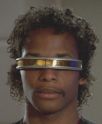|
Heck Yes! Loam! posted:They aren't currently possible, but they are theortically possible without breaking any physical laws. One of those "if it is possible it will happen" kind of things. ...pardon?
|
|
|
|

|
| # ? May 23, 2024 06:05 |
|
A big flaming stink posted:...pardon? Gesundheit
|
|
|
|
DrSunshine posted:Well, I mean... you'd know eventually, probably. It might take a few thousand years (about 100k, for the Milky Way) to find out whatever happened to those folks on the other side of the galaxy, but you'd find out. And really, it never really stopped people from spreading. The Polynesians may as well have been separated from each other by interstellar gulfs for how isolated some places were from others, and the expanse of the Pacific Ocean didn't seem to stop them from colonizing almost every habitable island there. They of course splintered into hundreds of separate sub-civilizations, but I don't think any of them would've thought it was pointless. Eh, I was just annoyed the effort post I spend lots of time on researching was brushed off unthinkingly by the very next poster.
|
|
|
|
A big flaming stink posted:So uh, sorry to dredge up an old topic, but how exactly are von Neumann probes not something completely in the realm of fiction? For starters, life is a self contained replicator, so it's clearly possible. There's a technical term for it that I'm forgetting, but basically you need to exceed a certain number of duplicates per your error rate in order to maintain cohesion as a "species". Viruses with really lovely replication methods like HIV are just on the cusp of this, for example. Also, the image of a completely self contained probe is probably not the best way to do it. The interstellar traveller body would contain the instructions and capabilities to manufacture specialised machines for mining and processing. These would eventually manufacture more specialised interstellar travellers.
|
|
|
|
A big flaming stink posted:So uh, sorry to dredge up an old topic, but how exactly are von Neumann probes not something completely in the realm of fiction? Much of science fiction is possible. The question is whether it is outside plausibility and is some kind of science themed magic fantasy. It would perhaps be one of the most complex and intricate machines ever developed by our species, but given enough time, and resources, all aspects of a von neumann probe are fundamentally engineering challenges and a question of AI development, information theory, and material sciences. Could we build one in a 100 years? Maybe not, but is 1,000 outside the realm of possible? 10,000? 100,000? 1,000,000? Putting aside all other facts such as political will, or disasters that could befall such a project; solely on the question as to whether it is plausible there isn't really any aspect of it that isn't plausible. Perhaps there are some question marks here and there as to whether a material with the right attributes currently exists, or an AI program will exist with sufficient complexity to handle tasks. But given enough time? We can launch space probes that travel fast enough already to leave the solar system; building something like a massive solar energy array around the sun by dissassembling mercury for materials or early colonization of Mars and exploiting Da Belt would probably give us the experience and knowhow; insofar as making durable automated systems is concerned.
|
|
|
|
A big flaming stink posted:...pardon? This is how internet science enthusiasts think about technology. If enough people want a technology, and its existence canít be disproved using zeroth-order physics reasoning, then it is inevitable.
|
|
|
|
Bug Squash posted:For starters, life is a self contained replicator, so it's clearly possible. There's a technical term for it that I'm forgetting, but basically you need to exceed a certain number of duplicates per your error rate in order to maintain cohesion as a "species". Viruses with really lovely replication methods like HIV are just on the cusp of this, for example. i mean, life is profoundly ill-suited to surviving in space, so that might not exactly be a point in favor of space probes  as to your second point, housing the means to fabricate these parts is still going to be an immense cost on weight, is it not? Raenir Salazar posted:Much of science fiction is possible. The question is whether it is outside plausibility and is some kind of science themed magic fantasy. the bolded in particular seems to be assume such progress is certain. Also, my point is that a von neumann probe has to be capable of transporting both itself and the means to reproduce itself throughout vast stellar distances without allowing any damage to both these means as well as the information that tells it what exactly to replicate. whats more, if you allow redundancy in these systems that also creates more mass that must be tranported across those distances. to me it seems like you need to overcome entropy to actually have a hope for success simply due to the incredibly inhospital environment that is deep space.
|
|
|
|
Raenir Salazar posted:Much of science fiction is possible. The question is whether it is outside plausibility and is some kind of science themed magic fantasy. You're making the mistake of assuming that any hypothetical technology that doesn't break known laws of physics is possible. This is not a safe assumption. It's entirely possible that the nature of our universe makes some engineering challenges impossible, and that (for example) materials meeting certain criteria literally can't be produced. That obviously doesn't mean people shouldn't continue trying to expand the definition of what's possible, but you can't just say "given enough time, virtually anything that we don't currently know to be impossible can be done." edit: Put another way, in the same way that new knowledge can open doors, it can also close them. We might not know some things about the universe that make certain technology possible, but we also might not know some things that make it impossible. Ytlaya fucked around with this message at 22:13 on Nov 25, 2019 |
|
|
|
A big flaming stink posted:i mean, life is profoundly ill-suited to surviving in space, so that might not exactly be a point in favor of space probes Progress is basically certain because we've never known it not to be. Claims like it needs to be capable of overcoming entropy are actually quite extraordinary, and as they say, extraordinary claims require extraordinary evidence. It seems to be that you're "just asking questions" may not actually be in good faith, since you ignored the reasonable explanations, i.e we presume progress continues and the particular engineering challenges can be overcome; to making wildly grandoise claims like "a von neumann probe would need to overcome entropy" i.e break the laws of physics. According to my best googling, the Voyager probes, 1970's era technology, are expected to make the 50,000 year journey to another solar system. So the transportation part seems settled. Additionally mass isn't a problem in space. Mass is mainly a problem for getting things into orbit because each gram of mass requires considerable thrust/energy to lift to orbit. Megaengineering projects that are perfectly feasible in the near future (say 50 years) such as space elevators handle that easily; todays technology allows for skyhooks and similar which would be capable of launching a non trivial amount of mass cheaply in relative terms to orbit. You don't actually know how much mass a theoretical von neumann probe would require but once it is in space its fairly settled science that we can push a considerable amount of mass with current day concepts currently on the blackboard. In fact it was well considered plausible back in the 50's; the von Braun Mars Project called for 6,000,000 metric tonne spacecraft for exploring Mars without him claiming it would require breaking the laws of physics. So how about some evidence instead of conjecture. Ytlaya posted:You're making the mistake of assuming that any hypothetical technology that doesn't break known laws of physics is possible. This is not a safe assumption. It's entirely possible that the nature of our universe makes some engineering challenges impossible, and that (for example) materials meeting certain criteria literally can't be produced. But again though, this isn't an unreasonable assumption to make; whatever unknowns exist, or reasonable uncertainty doesn't make the claim "a von neumann probe would basically need to overcome entropy" reasonable or true. There are uncertainties, but none that categorically state a von neumann probe is implausible is the point; if you don't know something then all possible outcomes are equally likely and its obnoxious to claim the implausible outcomes are more valid just because they merely happen to exist. Like shifting this to a meta discussion about How Do We Know Numbers Exists Man, doesn't seem like anything other than a waste of time and an excuse for people to be contrarian stop having fun havers. Raenir Salazar fucked around with this message at 22:22 on Nov 25, 2019 |
|
|
|
ok mea culpa i completely borked the more mass=bad part in my head to conflate between getting it into space and propelling it while already in space. Still, as to the transportation, the difficulty in getting it to travel intersteller distances is not simply making the journey, since obviously pointing something in space and having it go that distance for however many years is fairly trivial, but rather it needs to complete that journey with its means of self-replication and the instructions on how to do so intact. this is where i was going for my entropy point; the inherent trend from order to disorder will impede a perfect reproduction of the probe, and as far as I know, the concept of a von neumann probe relies on this perfect reproduction (or at least a reproduction within acceptable error margins) also, i have no problem admitting that i'm hella skeptical of some of the arguments here but i'm still engaging in good faith.
|
|
|
|
A big flaming stink posted:ok mea culpa i completely borked the more mass=bad part in my head to conflate between getting it into space and propelling it while already in space. Still, as to the transportation, the difficulty in getting it to travel intersteller distances is not simply making the journey, since obviously pointing something in space and having it go that distance for however many years is fairly trivial, but rather it needs to complete that journey with its means of self-replication and the instructions on how to do so intact. this is where i was going for my entropy point; the inherent trend from order to disorder will impede a perfect reproduction of the probe, and as far as I know, the concept of a von neumann probe relies on this perfect reproduction (or at least a reproduction within acceptable error margins) I'll point out again that we already know that the replication aspect is possible, because we can see living things doing it. Life already is a Von Neumann replicator. Since there's probably not anything magical going on in an ecoli cell, it's philosophically a solved problem that it's possible to build an artificial replicator, it's just currently beyond our technology. Every individual probe will eventually break down, but as long as they create enough copies a population will grow. Edit: don't worry about pushing back against anything I've said btw, there's been a few bad-faith arguers but as long as folks are engaging honestly it's fine to disagree Bug Squash fucked around with this message at 23:40 on Nov 25, 2019 |
|
|
|
Bug Squash posted:I'll point out again that we already know that the replication aspect is possible, because we can see living things doing it. Life already is a Von Neumann replicator. Since there's probably not anything magical going on in an ecoli cell, it's philosophically a solved problem that it's possible to build an artificial replicator, it's just currently beyond our technology. right, i'm not saying building a self-replicator is impossible, i'm saying building a self-replicator that travel vast distances of interstellar space with its replication intact strikes me as if not implausible, then astoundingly difficult.
|
|
|
|
I'm skeptical of Von Neumann probes -- not of their feasibility, but of how possible it is to have a self-replicating organism, essentially, that doesn't experience mutation and gradual change over cosmic timescales. It seems like evolution, and therefore change in its overall mission goals, would be inevitable. I mean what we're talking about is basically creating a living thing, an artificial space-borne lifeform, designed to consume resources and reproduce. Could we really ensure that it would continue to fulfill its mission, flawlessly, despite having self-copying code and advanced, possibly even sentient AI? I think that's something we should be scared of. Maybe the reason why we don't see Von Neumann probes is because all the civilizations advanced enough to build them have wisely chosen not to.
|
|
|
|
A big flaming stink posted:right, i'm not saying building a self-replicator is impossible, i'm saying building a self-replicator that travel vast distances of interstellar space with its replication intact strikes me as if not implausible, then astoundingly difficult. Yeah you're absolutely right. It would probably be the greatest engineering feat in a species history. Bur if we think about how certain species have handled longevity (probably the biggest issue for space travel), it does suggest to me that it's not impossible. Bristle Cone Pines manage to live and be fertile for over 4000 years, for example, so I think that it's possible to build a machine that can do the same. Higher life forms are essentially colonies of cells, each one being replaceable. If we follow that model for a self replicator, with multiple redundant cells capable of disassembling and recreating a failed cell, you've got a very resilient system. If you're serious about getting one of these systems to a neighborhood star, you might well create millions and expect a 99% failure rate, even with the redundant self repairing systems. As for mass, who knows. Miniturisation could get to really incredible levels based on what's already possible by living cells, and the probes could be designed like seeds that gradually tapped into metals on an asteroid and built themselves and mining systems up. Or we could be stuck with something Rama sized, there's really no way to tell from our current low level of technology how it'll play out.
|
|
|
|
DrSunshine posted:I'm skeptical of Von Neumann probes -- not of their feasibility, but of how possible it is to have a self-replicating organism, essentially, that doesn't experience mutation and gradual change over cosmic timescales. It seems like evolution, and therefore change in its overall mission goals, would be inevitable. I mean what we're talking about is basically creating a living thing, an artificial space-borne lifeform, designed to consume resources and reproduce. Could we really ensure that it would continue to fulfill its mission, flawlessly, despite having self-copying code and advanced, possibly even sentient AI?
|
|
|
|
A big flaming stink posted:right, i'm not saying building a self-replicator is impossible, i'm saying building a self-replicator that travel vast distances of interstellar space with its replication intact strikes me as if not implausible, then astoundingly difficult. 200 years ago, the cellphone Iím posting this from would be so completely beyond the realm of technology that it would be almost impossible to imagine. Every aspect, from the way it uses electricity to the idea of a computer, or the internet, or texting, or a cell phone, or even just a phone existing. The manufacturing and some of the materials are absolutely wildly beyond what was possible then. 500 years ago, Iíd be burned at the stake for having it. Like I get your point, and Ďyeah but maybe we canítí is definitely a possibility. Iím just confused as to why thatís pretty much your entire contribution to the thread, even when stuff is explained that answers some of the problems youíve mentioned.
|
|
|
|
A big flaming stink posted:ok mea culpa i completely borked the more mass=bad part in my head to conflate between getting it into space and propelling it while already in space. Still, as to the transportation, the difficulty in getting it to travel intersteller distances is not simply making the journey, since obviously pointing something in space and having it go that distance for however many years is fairly trivial, but rather it needs to complete that journey with its means of self-replication and the instructions on how to do so intact. this is where i was going for my entropy point; the inherent trend from order to disorder will impede a perfect reproduction of the probe, and as far as I know, the concept of a von neumann probe relies on this perfect reproduction (or at least a reproduction within acceptable error margins) Well if you are good, there have been plenty who aren't. As for having something make the journey and remain functional, this is largely a solved problem. Again the Voyager space probe, it's power will have run out but there's currently no evidence that I can find that it would have eroded down to dust. By all accounts I can find it seems like much of its structure is intact. Which suggests to me that if we were deliberate about it then the outer shell/armor of a purpose built starship would be even easier to reinforce. We've also have had decades of additional experience in space; and probably will have decades, if not centuries of experience in exploiting our solar system in making spacecraft durable to make them safe, especially for humans. It is hugely important to stress the context; that we have likely at that point, a highly advanced civilization exploiting the various worlds and asteroids of our own solar system; which would heavily rely upon us gradually mastering virtually every requirement we can think of for an interstellar voyage. Automation, automated repair systems, durability, resource gathering and processing/fabrication in-situ. Entropy isn't magic; it isn't a magic field that breaks things down, its a observation of thermal dynamics. Things break down in fairly deterministic ways, entropy doesn't mean nothing can make it a 50,000 year trip; we'd obviously do tests, run simulations, and further strain everything to the edge of our knowledge if there is in fact something critical that wouldn't make it. Remember that creations would claim evolution violated entropy; the fact is that it only applies to a closed system; a starship is not necessarily closed to such an extent that we couldn't make the process so slow as to be irrelevant. For example, humans age and die; but we can cure aging; its possible, we can do it; it doesn't violate entropy for humans to achieve biological immortality. This is why claiming entropy is an issue is so bizarre, because basically its like claiming entropy stops transatlantic flight. Sure an aircraft sitting in a desert untouched will gradually rust away over thousands of years; but you can with a brand new plane make the trip no problem. A spacecraft is no different; entropy isn't going to make it breakdown magically before it gets there; there are well understood problems and there are generally well understood solutions. Again to repeat; none of our hard drives or discs are designed to last that long; planned obsolescence is a thing. If we want data storage to last a long time before needing to be backedup and transferred to fresh storage its probable that effort is expended to research into that. A bunch of rocks in a empty field is turing complete with enough rocks and enough time, maybe how we do computing might have to be adjusted in some cases depending on the need; but I bet you no one has really put in the thought into it yet. But going back to Voyager, my understanding is it stopped broadcasting because its battery ran out. A starship likely has some a powerplant that won't run out during the trip, and as long as you have energy you're fine.
|
|
|
|
My favorite Fermi hypothesis, which I haven't seen considered much in this thread, is the Planetarium Hypothesis: extraterrestrial/extrasolar civilization exists and is thriving and everything we observe outside of the solar system is a staggeringly complex ruse for hiding behind Why? Who knows- it's difficult to map our intentions onto those of theoretical aliens. Maybe we're amusing, or part of a grand experiment, or part of a barroom-equivalent bet
|
|
|
|
DrSunshine posted:I'm skeptical of Von Neumann probes -- not of their feasibility, but of how possible it is to have a self-replicating organism, essentially, that doesn't experience mutation and gradual change over cosmic timescales. It seems like evolution, and therefore change in its overall mission goals, would be inevitable. Crocodiles have stayed basically the same for hundreds of millions of years, even when surrounded by myriad types of different life. Evolution is inevitable, sure, but population change requires some sort of pressure, be it natural selection or sexual selection or what have you.
|
|
|
|
It's likely that if there's aliens out there and they're deliberately leaving us alone, it's because we're the galactic version of those isolated tribes you sometimes hear about who throw spears at helicopters and stuff
|
|
|
|
If humans and other biological life are already goo-phase Von Neumann replicators and mission creep/focus change is a design concern in our interstellar Von Neumann probe mission, why don't we engineer ourselves into interstellar probes? Whatever we become after that, to quote Dr. Banzai, wherever we go, there we are. (This is a joke post. I wouldn't wish us on an unsuspecting galaxy like that.)
|
|
|
|
Kesper North posted:If humans and other biological life are already goo-phase Von Neumann replicators and mission creep/focus change is a design concern in our interstellar Von Neumann probe mission, why don't we engineer ourselves into interstellar probes? You know that creepypasta short story about the galaxy being so quiet because being heard is dangerous: https://creepypasta.fandom.com/wiki/Radio_Silence We're totally the species everyone is trying to avoid.
|
|
|
|
If I were going to bet about why we haven't noticed any aliens, my best guess would be the boring "we could look directly at an inhabited star with our best instruments and there wouldn't be enough signal to notice." Electromagnetic radiation intensity falls off really fast with distance, it's going to be hard to build telescopes with enough resolving power to pick up artificial signals or chemical EM spectra.
|
|
|
|
Heck Yes! Loam! posted:You know that creepypasta short story about the galaxy being so quiet because being heard is dangerous: https://creepypasta.fandom.com/wiki/Radio_Silence I mean, we introduced ourselves with dick pics and mixtape. I'd ghost on that too.
|
|
|
|
DrSunshine posted:I'm skeptical of Von Neumann probes -- not of their feasibility, but of how possible it is to have a self-replicating organism, essentially, that doesn't experience mutation and gradual change over cosmic timescales. It seems like evolution, and therefore change in its overall mission goals, would be inevitable. I mean what we're talking about is basically creating a living thing, an artificial space-borne lifeform, designed to consume resources and reproduce. Could we really ensure that it would continue to fulfill its mission, flawlessly, despite having self-copying code and advanced, possibly even sentient AI? Of course, then you open yourself up to some of your probes deciding they don't want to conquer the galaxy or the universe for you. Some of them might even decide that doing so is wrong, and begin to wage wars of extinction on sibling probe factions. But, as you correctly point out, that was going to happen anyway.
|
|
|
|
MSDOS KAPITAL posted:If you actually wanted to build Von Neumann probes to spread out and conquer the galaxy for you, not only would you have to consider mutation / value drift, you'd want it to happen. You can't possibly anticipate every challenge your probes will have to face either in the form of rival probes from other civilizations, unknown physics, or who the hell knows what else. You'd want your probes to be able to adapt themselves to new challenges so they can more effectively carry out their mission. ok this seems like its less about creating von neumann probes and more about literally creating sapient life. which, i will grant, is a hell of a lot more interesting
|
|
|
|
A big flaming stink posted:ok this seems like its less about creating von neumann probes and more about literally creating sapient life. it also does make it rather pointless from the viewpoint of "let's colonize the galaxy!" for the creator race, and maybe even dangerous. What if one of the probes rebels against you and its offspring correctly identifies the planet with the most lush resources is the progenitor planet? Maybe the answer to the Fermi paradox is as prosaic as "it'd be cool, but ultimately it is not worth it."
|
|
|
|
Has everyone in here read up on the Nimitz incident?
|
|
|
|
|
Ytlaya posted:You're making the mistake of assuming that any hypothetical technology that doesn't break known laws of physics is possible. This is not a safe assumption. It's entirely possible that the nature of our universe makes some engineering challenges impossible, and that (for example) materials meeting certain criteria literally can't be produced. You aren't going to convince the posters here of this. In their view, there are no such things as failed or dead-end technologies, there are only technologies which have been failed by insufficient funding levels. To them, technology development is like the machine at Chuck E Cheese which converts dollars into tokens, where the tokens you get out of the machine are always in proportion to the dollars you put in. I think the perfect example of this was one time in the Energy thread on this subforum, owlofcreamcheese was complaining about how we aren't on track to economically generate electricity from nuclear fusion in 2050, like in the video game SimCity 2000. He blamed the lack of technology improvement on the funding levels for nuclear fusion research, which is a pretty normal thing for internet science enthusiasts to do, but in addition he blamed the scientists for not trying hard enough. He was convinced that the meager progress in improving the fusion reaction energy efficiency was because the goals set in the research programs were too incremental, and that really there were all of these opportunities to greatly improve the efficiency which were being ignored in order to just barely meet the goal. The scientists and government funding agencies were just mailing it in.
|
|
|
|
A big flaming stink posted:ok this seems like its less about creating von neumann probes and more about literally creating sapient life. I think you misunderstood. There is maybe a variation of von neumann probes wherein they are simply terraforming in advance of colony ships; but they could also be our colony ships. It's not about creating sapient life or whatever, its just a thought experiment that there is some rudimentary means in which a space faring interstellar civilization can spread throughout the galaxy; its a black box that could be anything, the pertinent details is that it's capable of building new von neumann probes from the resources it extracts and processes and sends some N number of probes to other stars; because such a recursive process is one nearly guaranteed from a statistical standpoint of covering the whole galaxy in x million years. I don't think you should be concerned with discussing von neumann probes if the idea of sending a single autonomous starship to a nearby star system you're skeptical about because that's kinda a required step. I'm a little confused because in this post you talk about what's more "interesting" but before you were only concerned with what was plausible and thought the entire concept of interstellar space travel violated thermodynamics. Can you clarify your position and respond to my previous response to you? silence_kit posted:You aren't going to convince the posters here of this. In their view, there are no such things as failed or dead-end technologies, there are only technologies which have been failed by insufficient funding levels. To them, technology development is like the machine at Chuck E Cheese which converts dollars into tokens, where the tokens you get out of the machine are always in proportion to the dollars you put in. Why are you here; playing devil's advocate is one thing but this is just blind irrational contrarianism and grudge posting about posters you don't like. Raenir Salazar fucked around with this message at 15:38 on Nov 26, 2019 |
|
|
|
A big flaming stink posted:ok this seems like its less about creating von neumann probes and more about literally creating sapient life. You might also consider it in terms of r/K selection theory. Is it a good idea to design relatively dumb, low quality probes which utilize every available resource to build as many dumb, low-quality probes as they can, assuming you don't have to worry as much about resource selection in this case? Aside from this being kind of pointless if the purpose of the probes is to lay the groundwork for future human colonization (they will consume all the resources before we get there), there is also another problem: with more probes there is greater potential for random defects in the reproduction process introducing that value drift again. With a K-selection strategy, i.e. intelligent probes which use resources sparingly while still accomplishing their mission, there is less potential for random mutations introducing drift but now you've made purposeful adaption a part of the design itself, so you've still got value drift as explained above. "Ideally" I guess you want an intelligent probe which can adapt but will nevertheless not adapt too much. That is a difficult balance to strike, I think, and awfully risky to rely on: how can you be sure you've actually done it? Ultimately you're just releasing them into the galaxy and hoping you got it right, and you probably only get one chance. And it's worth pointing out that the downside of not getting it right on the first try can be as catastrophic as the total annihilation of the progenitor race to their own probes. MSDOS KAPITAL fucked around with this message at 19:20 on Nov 26, 2019 |
|
|
|
DrSunshine posted:I'm skeptical of Von Neumann probes -- not of their feasibility, but of how possible it is to have a self-replicating organism, essentially, that doesn't experience mutation and gradual change over cosmic timescales. It seems like evolution, and therefore change in its overall mission goals, would be inevitable. I mean what we're talking about is basically creating a living thing, an artificial space-borne lifeform, designed to consume resources and reproduce. Could we really ensure that it would continue to fulfill its mission, flawlessly, despite having self-copying code and advanced, possibly even sentient AI? We don't have to and no. The mission in question is to spread life. If the probe starts mutating that's irrelevant, as long as the mutations help it survive instead of crippling it. It may even beneficial from the standpoint of spreading our kind of life! A variant of this is even a type of colonization that sometimes gets spoken about : Instead of just replicating, cheap probes are filled with microbes and blasted of towards potential targets en mass. Evolution then does the rest. (Though this of course works on the timescale of giga years, instead of kilo and mega years like the Von Neumann-variants.)
|
|
|
|
Libluini posted:We don't have to and no. The mission in question is to spread life. If the probe starts mutating that's irrelevant, as long as the mutations help it survive instead of crippling it. It may even beneficial from the standpoint of spreading our kind of life! Maybe some of the probes decide that colonizing the galaxy in this way is stupid (I happen to agree btw!) so they settle down on a planet, or handful of planets. If too many do this or something like it, your mission will fail. Furthermore, maybe knowing that their are other probes out there consuming resources and colonizing the galaxy, and knowing also that eventually those probes will come for them, they will go to war against your other, still mission-performing probes, out of self-preservation. If they are successful in this your mission has then completely failed because you have no more probes doing colonization work for you. (Moreover, in this particular case, it's possible those probes would then hunt down an exterminate human life so we can't give it another go with better-designed probes.) I mean there are other examples of value drift but that's the gist.
|
|
|
|
Ratios and Tendency posted:Has everyone in here read up on the Nimitz incident? If that's not the US faking it to distract people from something else then somebody somewhere has physics breaking propulsion technology, you can probably guess which is more likely
|
|
|
|
MSDOS KAPITAL posted:So in my previous posts I keep mentioning what I call "value drift" which I think is important to consider in the context of your post here. Value drift refers to probes / organisms that, via mutation or adaption, come to have different primary goals than their ancestors. With enough value drift they become basically unrecognizable to their progenitors. I'm not sure I really see this as failing or outside of the project scope. Many of our descendant colonies, that are many n-degrees of separation removed from Earth Prime, are going to be largely unrecognizable from us, with wholly different languages from us, and different cultures and so on. We'd totally accept this as not only possible but inevitable but not really actually a problem. Like if a bunch settle down on planets and stop their mission, who cares? They still settled and the future is always mutable; other probes will keep going. If some future human civilization decides to war other nearby human civilizations who cares? Nations are going to war with each other right now; genocidal war or nuclear war, or relativistic weapons are possible but not necessarily likely or universal. And again, as long as there is at least one descendant civilization that sends out n probes, the mission is more likely to succeed, even if 99% of all descendant civilizations stop sending out probes, you just need 1 to continue sending probes. We are afterall, just one planet considering probes, how does that differ from one descendant civilization considering probes, why does it fail? Spreading across the whole galaxy isn't strictly the goal, its just the likely probability to some models. It'd be interesting if *we* were in fact created by von neumann probes and all of our common mythologies agreeing on there being a sort of judgement day/future Armageddon/ragnarok means warning us about some other von neumann probe reaching us. But probes/future civilizations going rogue and going to find others, sure it can happen, but its just a possibility among many possibilities.
|
|
|
|
Ratios and Tendency posted:Has everyone in here read up on the Nimitz incident? I have! I posted about it here earlier in this topic. There's two episodes of a podcast, Astonishing Legends, that delves heavily into the Nimitz incident and similar ones, if you're interested.
|
|
|
|
MSDOS KAPITAL posted:So in my previous posts I keep mentioning what I call "value drift" which I think is important to consider in the context of your post here. Value drift refers to probes / organisms that, via mutation or adaption, come to have different primary goals than their ancestors. With enough value drift they become basically unrecognizable to their progenitors. If I mentally subtract your crazy train derailing into Xenophobia-ville, I see no problem with this.  And what you call mission failure I'd call a minor success. And it's not that your original civilization in this example would ever stop sending out probes, or not for a very long time at least. Even if every single probe decides they really like the first planet they meet, that's a lot of minor success. Also you completely failed to address the bio-probe variant of interstellar colonization, which has no value drift at all, just lots and lots of genetic drift. 
|
|
|
|
Maybe we're talking at cross purposes because on the one hand Von Neumann probes are often brought up in the context of laying the groundwork for future expansion into an area by the folks that made them i.e. set up industrial infrastructure, get a colony ready to be moved in to, then send out a few more probes. I hope it's obvious how value drift would interfere with this. On the other hand, sure, if you're talking about just creating lifeforms and sending them out there, great. It's a bit disconcerting how you blithely dismiss the very real possibility of a probe faction going rogue and wiping out humanity IMO, but 
|
|
|
|
silence_kit posted:You aren't going to convince the posters here of this. In their view, there are no such things as failed or dead-end technologies, there are only technologies which have been failed by insufficient funding levels. To them, technology development is like the machine at Chuck E Cheese which converts dollars into tokens, where the tokens you get out of the machine are always in proportion to the dollars you put in. What's an example of a failed or dead-end technology to you? Also I'm going to hazard a guess that OOCC was referencing that chart of funding levels the U.S. government could've gone with for fusion technology, and the expected year where all of the engineering problems known of in 1976 when the report was written were solved. I understand your argument, but OOCC was correct with the part about the government dragging its feet and never funding a big money fusion power project of the scale it had planned to. MSDOS KAPITAL posted:On the other hand, sure, if you're talking about just creating lifeforms and sending them out there, great. It's a bit disconcerting how you blithely dismiss the very real possibility of a probe faction going rogue and wiping out humanity IMO, but How do these probes wipe out humanity, how do they overcome our attempts at defending ourselves? Tell me more. LtStorm fucked around with this message at 21:23 on Nov 26, 2019 |
|
|
|

|
| # ? May 23, 2024 06:05 |
|
LtStorm posted:I have! I posted about it here earlier in this topic. It is never aliens. My hypothesis: submarine-launched drone with a hybrid turboramjet engine and some unique flight characteristics. Specifically, the use of pure thrust as lift (because you don't have to haul a tinned ape and all the support equipment for same) and the ability to tip rapidly on its axis thanks to the lack of wings. Its estimated size is exactly right for an ICBM, which would be a design constraint for launching out of a missile tube, and if it was launched in a watertight casing that gets it to the surface before the engine lights (as ICBMs do) then seawater wouldn't have much chance to get in the engine. Recovery is trickier given that I don't see how you would avoid giving a red-hot engine made of expensive exotic metal a bath in seawater, which is like, super bad for it. As for why it was playing games with the Hornets when it's probably playing for our team: capabilities test. Skipping past a bunch of boring stuff like what other vessels were in the area at the time, but basically the right submarine and surface assets were in place to hold such an exercise without involving the entire carrier group's chain of command, and both incidents took place in testing ranges where the capability to securely execute and observe the exercises was in place. As for its purpose: Persistent scout (and potentially interceptor or even point-defense roles, depending on payload capability) for carrier battlegroups. Imagine a swarm of those things zotting Harpoons out of the sky with lasers or something, I dunno. Tighclops posted:If that's not the US faking it to distract people from something else then somebody somewhere has physics breaking propulsion technology, you can probably guess which is more likely I'm not convinced about it being physics breaking, just unorthodox. Do you know something I don't? Kesper North fucked around with this message at 21:36 on Nov 26, 2019 |
|
|



































